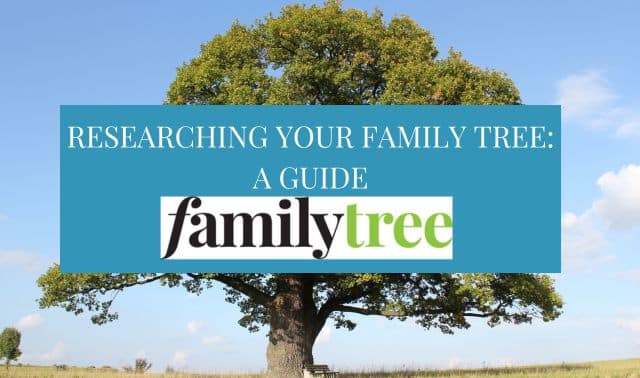Genealogists are talking about the PBS series “Genealogy Roadshow,” which has expert genealogists researching folks’ family history rumors, such as being related to historical figures such as Davy Crockett and George Washington.
Other common family stories include American Indian heritage, inherited crests or coats of arms, “black sheep” ancestors, and name changes at Ellis Island (a prevalent myth that isn’t true; many immigrants changed their own names after arriving in America).
If you’re curious about a family history claim that’s been passed down in your family, follow these 10 tips for getting to the truth:
- Research your family tree starting with yourself and continuing back in time along the branch associated with the myth in question, linking one generation at a time. This isn’t mind-blowing advice, but having a sound base for your family tree is essential to investigating a family story. Plus, it gives you something to do while you’re looking for records related specifically to that story. A how-to book such as Family History Detective or Discover Your Family History Online can help you get started.
- Erase your assumptions about your family history and start with an open mind. Although some family stories are true, many are exaggerated or downright false. What Grandma always said might not be true at all, or it might be based on a grain of truth.
- Try to figure out the source of the story. Ask relatives who they heard the story from, and what makes them believe or disbelieve it. This will help you evaluate the reliability of the claims (high cheekbones aren’t evidence of Indian ancestry, but an ancestor who lived on a reservation might be) and might provide research leads.
- Be prepared for pushback from relatives. If someone grew up believing he’s related to a prominent family or his surname was changed at Ellis Island, that belief is part of his identity. People get uncomfortable when you disrupt their ideas of who they are. Sometimes it’s best to let people believe what they want to believe.
Find advice for digging up family secrets and dealing with the aftermath in our digital download.
- Create a research plan to investigate the story:
- Write down what you want to find out.
- List known facts related to the problem. If you want to find out whether Great-grandpa was really in the state penitentiary, for example, list his life dates and periods of time when he’s unaccounted for, and where he lived during what years.
- Come up with a working hypothesis based on those known facts. For example, you can estimate when and where great-grandpa did time based on where he’s lived and those times he’s unaccounted for.
- List what type of records might have the information you need (in this case, censuses, prison registers, court records and newspapers are good candidates). State genealogy research guides can give you ideas, as can guides such as this one about researching criminal ancestors.
- Find out whether each type of record for the place and time you need is available, and how to get it.
- If your family claims connections to a famous person, research your tree and the tree of the famous person, and look for someone common to both. Genealogy enthusiasts have already traced many prominent family trees—find FamilyTreeMagazine.com articles about famous families here, including resources for celebrities and presidents.
- Remember that unrelated families of the same surname might live in the same area, especially for more-common surnames.
- These strategies can help you tackle a tough problem:
- Create a timeline for the ancestor or family in question.
- Research the ancestor’s “cluster“: siblings, cousins, other extended family, friends and neighbors.
- Research forward in time to find living descendants who might have family information. (Our on-demand webinar on finding living relatives can help.)
- Study the history of the time and place your ancestor lived to learn what factors may have affected his decisions, and what others like him did in similar circumstances.
- Search websites such as MyHeritage or Geni for family trees containing your relatives. But online trees aren’t independently verified and often have errors, so treat the trees as clues and do research to back up the claims.
- Genetic genealogy can help you prove or disprove relationships or certain ethnic heritages. Learn how to determine which DNA test to order and who should take it in our Intro to DNA Crash Course on-demand webinar.
- Share your work with another genealogist to get his take on the problem.
The Family Tree Problem Solver: Tried and True Tactics for Tracing Elusive Ancestors has more strategies and case studies you can use to work through research brick walls.
- Although some of the old records you need will be on websites such as Ancestry.com and FamilySearch.org, many records won’t be online. You’ll probably need to borrow microfilm through interlibrary loan or a FamilySearch Center, mail requests for photocopies to repositories, visit libraries and archives yourself, or hire a local researcher to do work for you. Online tools such as library catalogs and finding aids can help you find such records and repositories.
- Have you learned information about your family history that’s hard to swallow? Before you decide to share it, consider how the information might affect your living family members. If you reveal what you’ve learned, do so with sensitivity and good intentions.
Researching a family story might be relatively simple, as it often appears on television, or it might take years of research. You don’t see the hours of behind-the-scenes research involved in genealogy TV shows such as “Genealogy Roadshow” and “Who Do You Think You Are?” But that detective work is what many of us love about doing genealogy, and it’s how we honor our ancestors with the truth.




